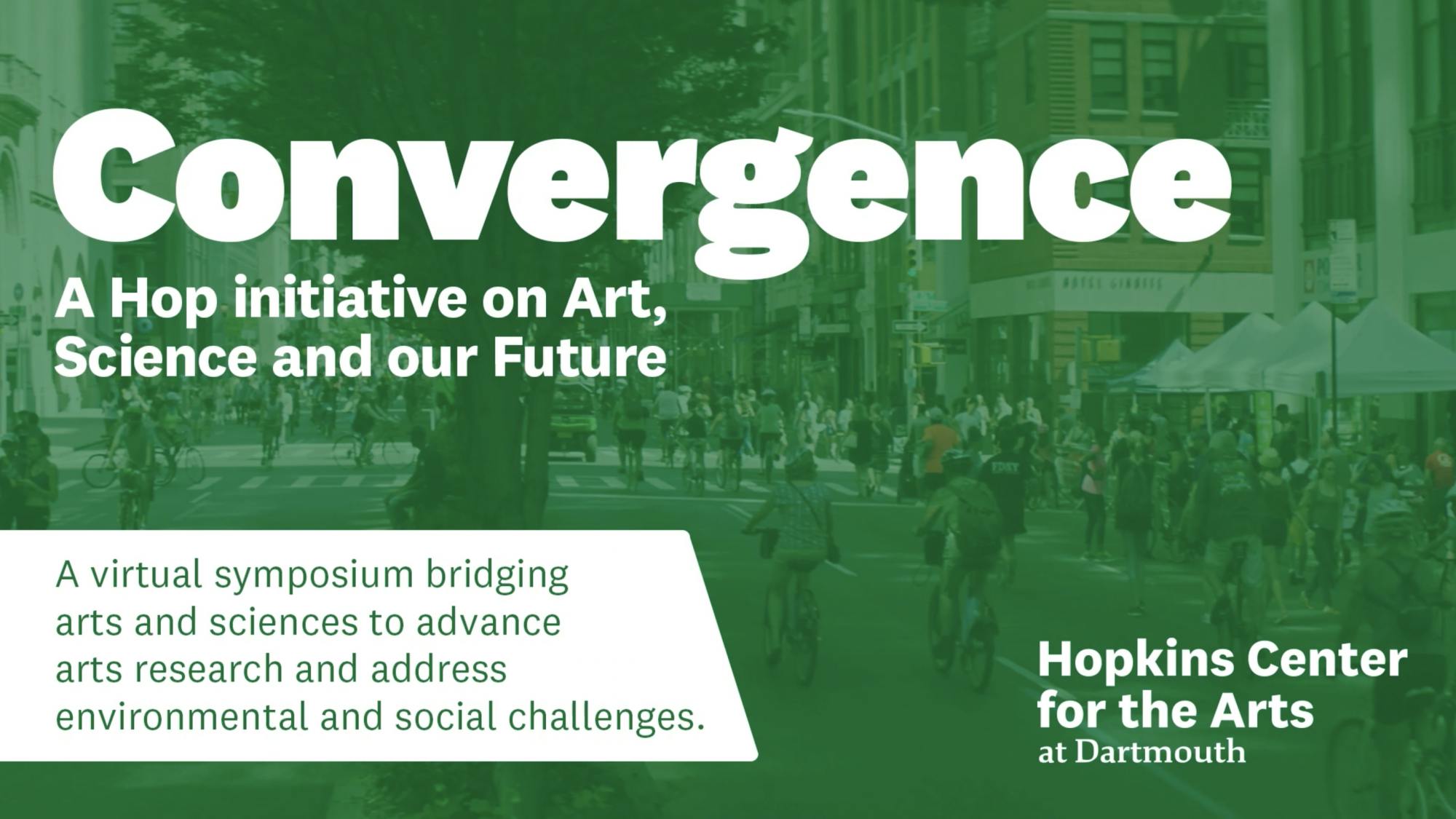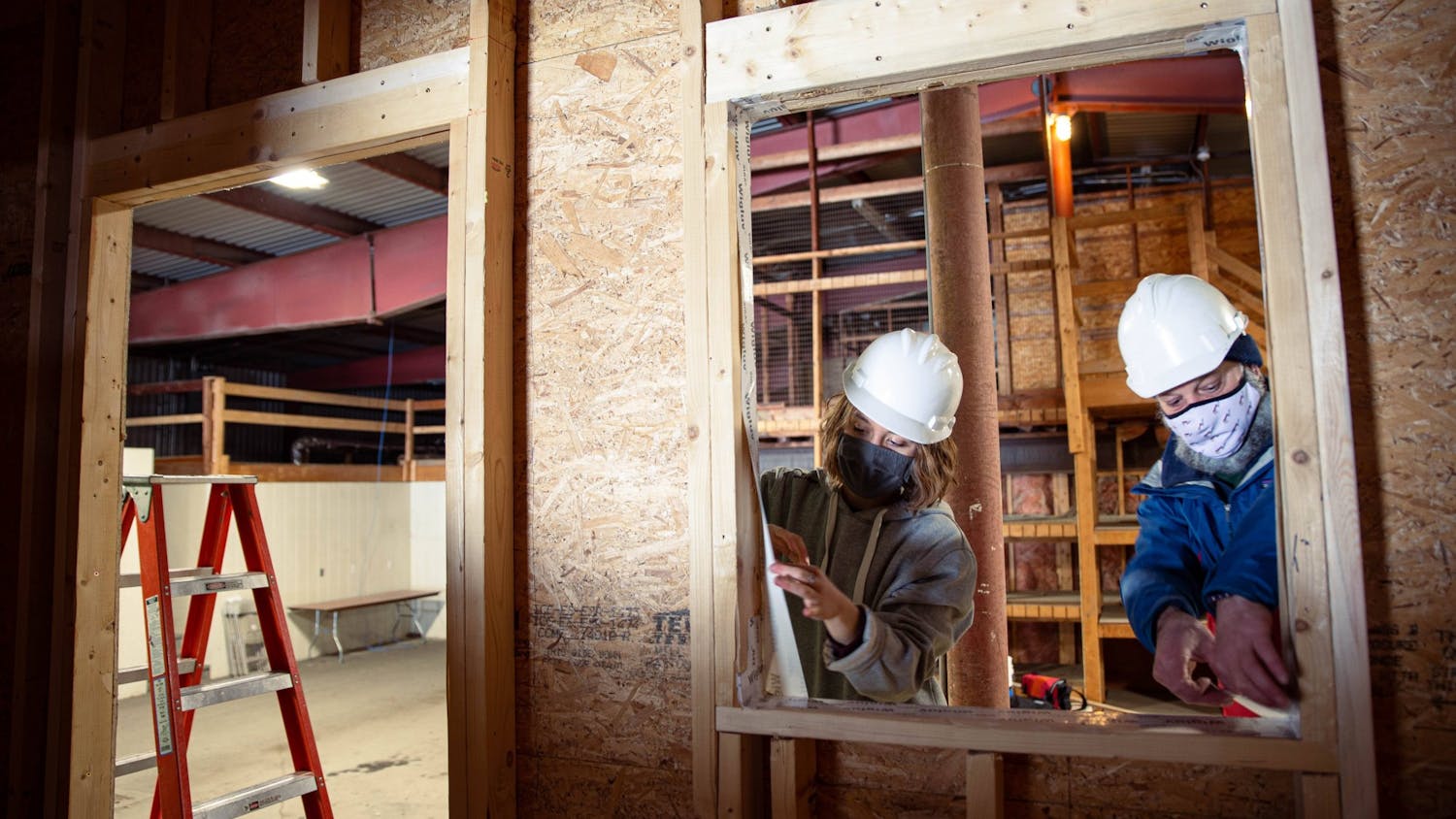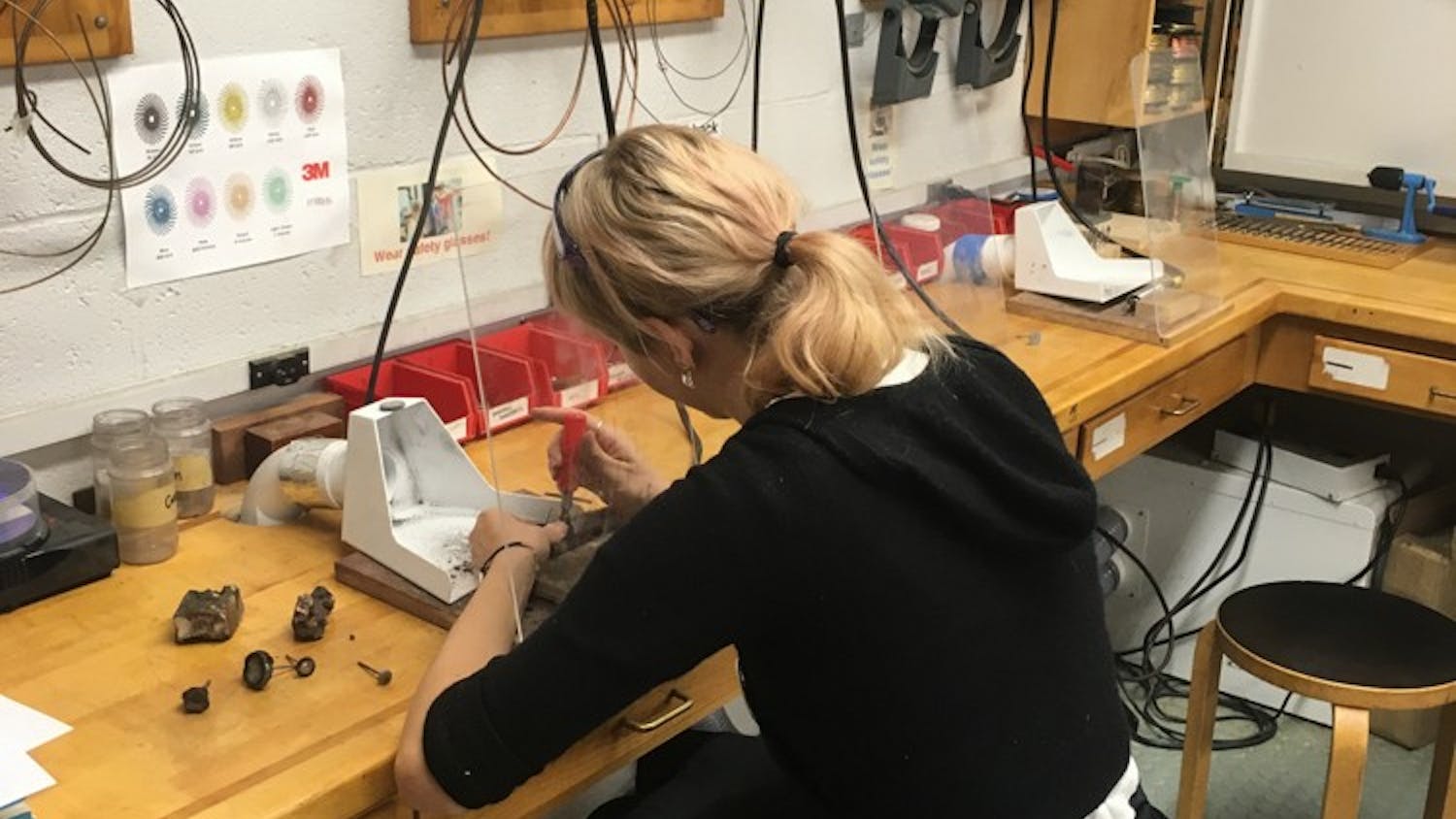On Feb. 11-12, viewers from across the globe tuned into the Convergence Symposium, a two-day event hosted by the Hopkins Center for the Arts. The symposium, which featured presentations from professors and artists, kicked off the Hop’s “Convergence” series, a joint venture with the Irving Institute for Energy and Society focused on educating the Dartmouth community on the overlap between art and science. Over 300 viewers joined the event over Zoom.
According to Hop director Mary Lou Aleskie, Convergence seeks to address societal challenges like climate change through the lens of the arts. By integrating emotionally evocative works like art installations with the work of visiting researchers, students and professors, the series hopes to spur social change.
Aleskie described the series as focusing on “an integrative approach to arts practices that aligns the arts with the sciences in response to some of the most pressing needs that humanity has.”
Last week’s symposium was a crossover of two series with matching missions — the Hop’s Convergence series and a national program called “Branches from the Same Tree,” a joint effort by the Alliance for the Arts in Research Universities and the National Academies of Sciences, Engineering and Medicine.
For the past three years, “Branches from the Same Tree” has toured at universities and colleges in so-called “town halls” to gather leaders and researchers from a variety of fields to discuss ways to integrate the humanities with the sciences. Dartmouth was the 21st and final stop of the tour. While the two-day event signaled the close of “Branches from the Same Tree,” it marked the beginning of Dartmouth’s own undertaking.
The overarching theme of the symposium was climate change, and a number of Dartmouth faculty and students presented projects on the issue. Art history professor Chad Elias discussed how museums and galleries contribute to climate change through their energy consumption, and music professor Ash Fure presented her art installation “The Force of Things: An Opera for Objects” — a dark, cavern-like exhibition space featuring sounds and vibrations. The exhibit explores how human beings are overwhelmed into inaction when it comes to global issues like climate change.
Aleskie credits Fure’s installation — which was initially performed in 2017 and was intended to be performed as part of the Convergence series in spring 2020 — as a primary source of inspiration for Dartmouth’s Convergence series, as it brought forth the idea of integrating art and environmental activism at an individual level.
While many of the symposium’s presentations were geared toward environmental awareness, problems like food insecurity and racial representation were also brought into the mix.
Fatema Begum ’22, who presented her project “Intersections of Science, Food, Slavery and Colonialism” at the symposium on Feb. 12, said she felt that the symposium was a great opportunity to connect seemingly disparate topics.
“I think something that’s been especially powerful is seeing how interconnected themes that seem different turn out to be,” Begum said.
Last spring, when the symposium was originally slated to be held on campus, event organizers had anticipated an audience of about 50 students. The over 300 attendees who tuned into the symposium through Zoom last week far surpassed these expectations.
“In the virtual world, people can just Zoom in and don’t have to travel to Hanover,” said Samantha Lazar, Hop curator of academic programming. “We suddenly go way beyond the campus and Dartmouth audience and got a national — actually not even — we’ve got a global audience.”
The Convergence series plans to continue beyond the summer as an ongoing project. While the “Branches from the Same Tree” project focused on symposiums and “town halls,” the Hop’s initiative will be composed of many individual events, including interdisciplinary projects and art-related events in the coming months.
Aleskie noted the importance of the Convergence series in highlighting the role art plays in times of unrest — an idea especially poignant in the current climate. She added that the series finds a balance between emotionally charged art and tangible solutions to bring about social change.
“I think those of us who really love the arts and who have lived our lives in the arts, we know how powerful the arts are in creating compassion and empathy, and in telling stories,” Aleskie said. “And if you can do that and make artistic practice and social science studies more real, and more connected to solutions, then you [have] a better chance at answering the most pressing human problems.”




